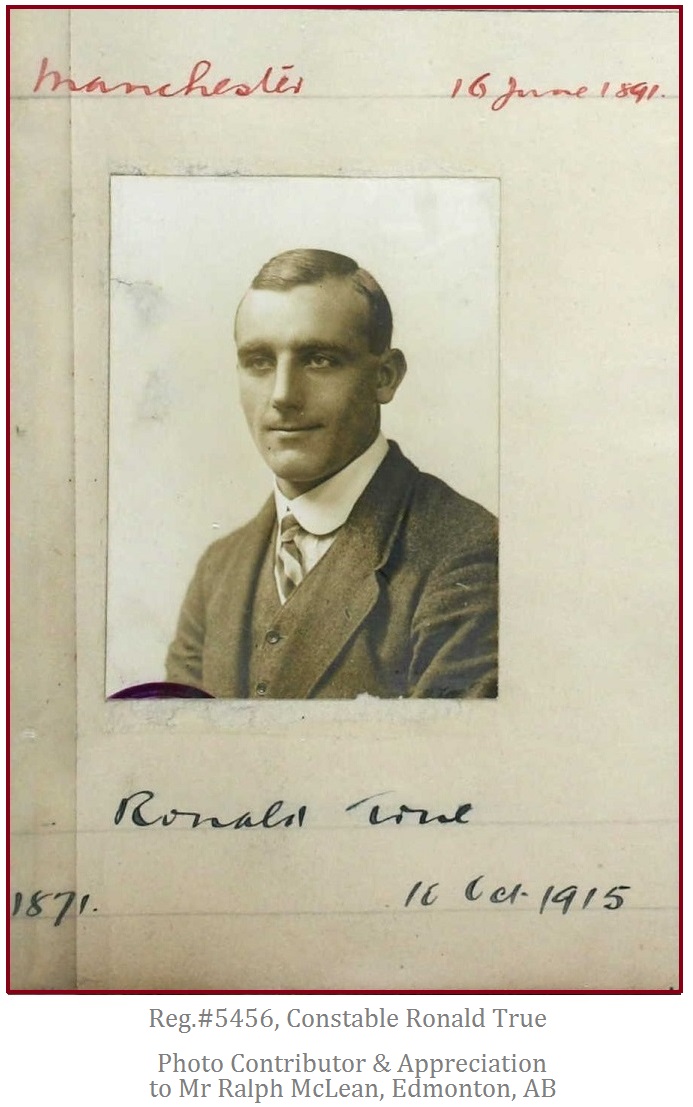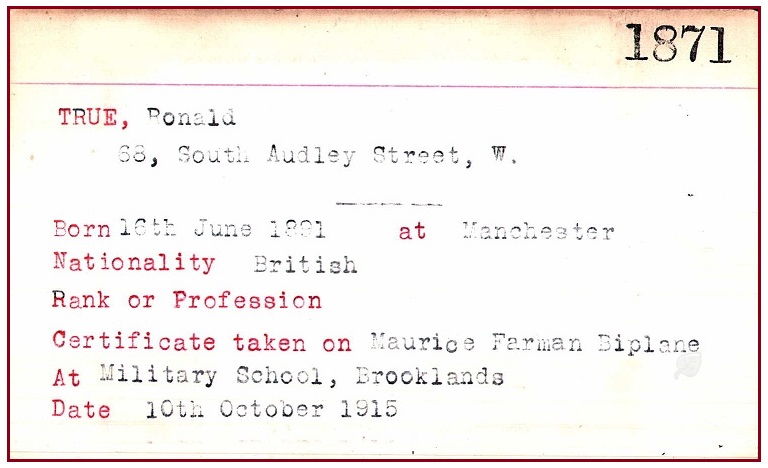True and Fascinating Canadian History

The Mystery Of The Mountie
Who Mistreated A Lady
by J. J. Healy
Yea, but for a kiss he was sentenced to die...

Oh, how men know when trouble brews or bubbles over. The streets and highways of history are lined with mistakes which men have made. And often it's too late once the error has been caught. Such was the case in the 'Mystery of the Mountie Who Mistreated A Lady'. It was an ugly affair that began with an innocent kiss. Yet in spite of all the sordid details, the story may provide us with a valuable lesson about life which one will surely discover as the Mystery unravels.
Not too long ago, in a TV interview with CBC Host Peter Mansbridge, well known Canadian novelist Margaret Atwood was asked what advice she would give to a fresh, start-up author more or less to guarantee book success and sales. In an amusing way, Ms Atwood replied that, '...when writing a crime novel, make sure that a dead body is presented to the reader in the opening few paragraphs'. 'Readers', Ms Atwood insisted, 'want to know there is a dead body'. And by extension, one might suppose that if the discovery of a dead body was mixed with passion, sex and scandal then surely book sales would soar to unmeasureable heights.
One should accept Ms Atwood's sage advice about crime stories as though it were solid gold. So yes, one can be assured there is a dead body in 'The Mystery of the Mountie Who Mistreated a Lady'. The Mystery revolves around a former member of the RCMP and a prostitute who was found murdered in the streets of London, England many, many years ago. The case also resulted in a spectacular murder trial but the outcome of the trial will undoubtedly surprise the reader.
By far, most Canadians have little contact with police officers with the exception of minor infractions under the Highway Traffic Act. Even a smaller percentage of Canadians have the need to attend court or to listen to the various actors involved in a trial; the judge and jury, the Crown Prosecutor, defence lawyers, police officers, forensic experts, medical experts and other witnesses. TV is unquestionably the medium whereby most people watch court proceedings.
Yet, while the screen might snare the imagination, TV is not necessarily helpful or instructional. One can hardly gain a valid portrayal of each person's role in court or their demeanour during a complex trial. Nor does TV allow for a solid grasp of the subtleties behind legal terms or of the complexities of legal arguments. Nor does TV accurately portray, for instance, the fear in the eyes of the accused if she or he is found guilty. For the truly interested person, nothing can replace the actual courtroom for solid learning about a criminal trial.
Undoubtedly, anxiety in the courtroom can be heightened depending on the kind and nature of the criminal offence under examination. On the one hand, there are a vast number of less serious offences which a sole judge may hear and adjudicate; non-injurious assaults, minor thefts, intoxication and the like.
On the other hand, the most serious of criminal offences; murder, robbery, violent sexual assaults are often heard by a judge and a jury. In short, some offences heard in court can cause the judiciary prolonged boredom while other trials such as those involving sex and murder are tightly packed with spice. Prostitution, for all times, has fallen into the spice category for keen courtroom observers.
From the beginning of time, prostitutes have tempted and somehow appeased the sexual appetite of men of all cultures and this observation about clientale worldwide also included and affected the lives of many early recruits of the North West Mounted Police.

In 1888, a somewhat humourous case arose when Reg.#1189, Thomas Patrick Cairney was shot and wounded in his butt by a prostitute when he tried to break into her Edmonton, AB shack. History wrote that Constable Cairney was not the only NWMP to wish upon a steamy star and then act out.
In 1891, Reg.#1919, Constable Glen Emigh was charged and convicted in a Fort MacLeod, AB Service Court for convorting with a prostitute and for being intoxicated at the same time. In an early attempt to deter inappropiate behaviour among other NWMP with like minded dreams, Superintendent Sam Steele sentenced Constable Emigh to fourteen days hard labour. But, that apparently did not fully inhibit biology.
After Constable Emigh, the Alberta sun had hardly set, when Reg.#2333, Constable James Aspinall was caught while intoxicated and associating with a prostitute. Superintendent Steele must have surely thought about the deepening mysteries of biology and that which drives men to the prostitute's door.
And, by what means Superintendent Steele used to qualify himself to identify particular women as prostitutes is also a mystery. That aside, prostitutes and the men of the Mounted Police kept Superintendent Steele and his Officer Corps busy in Service Court.
Reg.#3262, Constable John Alexander Barrie tried to befriend some prostitutes but his kindness mixed with dishonesty backfired. Constable Barrie was charged in Service Court for disgraceful conduct. He had obtained tickets dishonestly which would allow three prostitutes a better view of the Governor General's arrival dockside. He was sentenced to two months hard labour then dismissed from the Force as unsuitable. And in 1904, Reg.# 4113, Constable Frank Sherwood was fined fifteen dollars for being found in the company of a prostitute in Regina, SK. But, the most serious and tragic of all cases involving a prostitute and a member of the early Force had yet to be published.
Time did not record the exact birth orgins of Reg.#5456, Constable Ronald True. It is generally thought he was born in England and it is recorded that he joined the Force in September, 1912 but he quit 'Depot' about one month later. Then, he returned to England.

There is little doubt that former Constable True saw storm clouds which indicated the likelihood of World War I. In 1914, Ronald True switched his attention to the Royal Flying Corps. He entered the Corps as a pilot trainee. Eventually, True graduated as a full fledged pilot. Soon afterwards, he was seriously injured in the crash while he attempted to land his plane. His life then turned rough.
Ronald True's injuries were of such seriousness that he was admitted to a hospital for a sustained period of time. While he was a hospital patient, he became addicted to morphine. And it was his drug addiction that caused the Royal Air Force to review his pilot's qualifications and then release True from within its ranks. Although his trail went cold, it was apparent that he remained in the London, England area. In the years that followed, more trouble of the criminal variety was to befall Ronald True.
On March 5, 1922, former Constable True was charged with the murder of a London, England prostitute by the name of Olive Young. His trial was brief. On 01/05/1922, he was convicted by the court and sentenced to hang. In his mind, any hope was lost. An appeal was futile. Fate was to have its way with Ronald True and his time on this earth, according to the court, was to be shortened by the hangman.
But, not long after his trial, Ronald True was found insane -- not criminally responsible. It was said by medical experts and clinical tests that True did not comprehend the full nature of his criminal offence at the time of the murder or was he able to clearly distinguish right from wrong. He was committed to Broadmoor's Criminal Hospital where he lived out his final days. Ronald True died a prisoner in Broadmoor in 1951.
Perhaps there are lessons about life which are appropiate for every police officer and others too in the story of Constable Ronald True. I recall that in the mid 1960's as young constable in Burnaby, I was invited a few nights to patrol in a cruiser with the Vancouver Police Service. On one ocassion, a sweep for prostitutes along Vancouver streets was conducted by several police officers. I was left with deep and favourable impressions about the prostitute - Vancouver Police Officer relationship which I have never forgotten.
First of all and most important is that prostitutes are women with feelings who are struggling through days and nights filled with all sorts of unkind razors. Drugs, danger and false friends are their companions. At time of arrest, the vast number of prostitutes conform to instructions from a police officer. Force or firmness are not necessary. They deserve to be treated respectfully by police officers and gently helped to every extent possible.

In his or her professional relationship with prostitutes, the mature police officer can reflect on Christian biblical teachings about Jesus and His meeting of the prostitute at the well. He did set original legal precedent. As the first and primary law enforcement official, Jesus forgave her. Then, He showed her mercy.
And finally this. There are some matters which are far more injurious to society or serious to the police officer than prostitution. Ridicule of the prostitute by police officers or her situation comes to mind. In that sense, it is worthy for us to heed life's end day, for it might be the prostitute whom the police officer first faces in death. Let us hope she acts as an advocate and, it is to our benefit that she recalls our name in kindness. Like other people the police officer meets on foot beat, the prostitute too needs a friend. That, at least, is the lesson which I was taught by the Vancouver Police Service nearly fifty years ago.
And I am thankful.
'Maintain Our Memories'
From the Fort,
I have the honour to be, Sir
Your Obedient Servant
J. J. Healy
November 17, 2013





